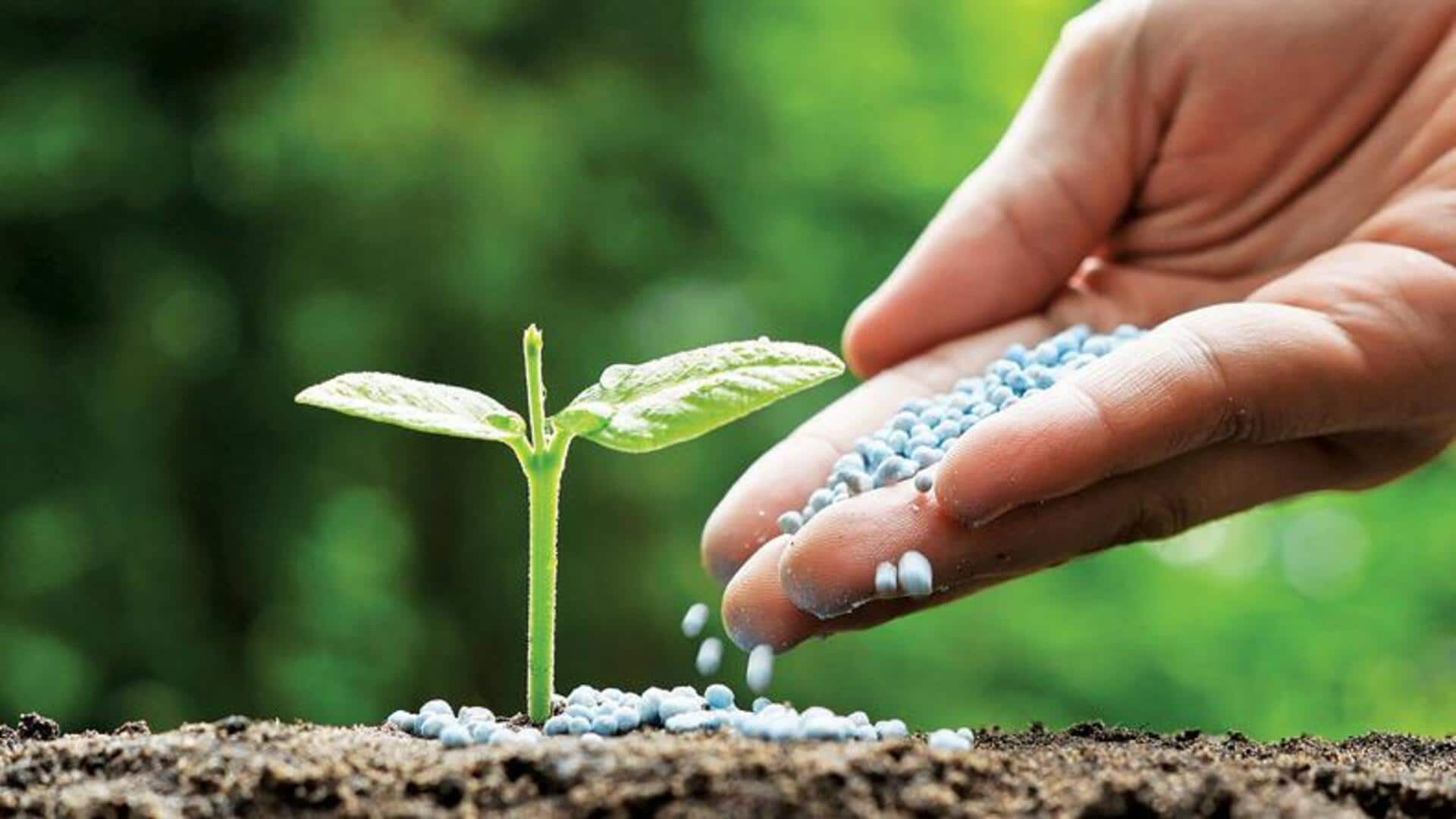
India develops first indigenous process for water-soluble fertilizer production
What's the story
India has made a major advancement in fertilizer technology by developing its first indigenous water-soluble fertilizer production process. The breakthrough comes after seven years of research and is part of a "Make in India" initiative supported by the Ministry of Mines. This development could help India reduce its heavy dependence on Chinese imports for specialty fertilizers.
Export potential
From import-dependent to export-dominating
The new technology, which has been developed using Indian raw materials and plants, could turn India from an import-dependent nation to an export-dominating force in specialty fertilizers. Rajiv Chakraborty, President of the Soluble Fertilizer Industry Association (SFIA), who led the research initiative, said his goal was to make India a country that exports specialty fertilizers instead of relying on imports.
Import dependency
Reducing dependence on Chinese imports
India's heavy dependence on Chinese specialty fertilizers has been the driving force behind the development of this indigenous technology. The country imports 80% of its specialty fertilizers directly from China, with another 20% being indirectly traded through Chinese sources. Apart from 5% NPK formulations made in India, the rest 95% of specialty fertilizers are sourced from China.
R&D hurdles
A thousand failures and risks
The development of this technology was not easy, with Chakraborty describing it as a "failure game a thousand times." He also revealed that he risked his business in pursuit of this breakthrough. The technology has been through multiple layers of government scrutiny and has received support from the Ministry of Mines for developing a pilot plant, which is now ready for scale-up.
Information
Technology to reach farmers soon
The new technology is expected to be available to farmers within two years as large-scale production capacities come online. Joint venture talks are already underway with leading fertilizer companies for commercial implementation. Chakraborty believes this will bring self-reliance in specialty fertilizers in the near future.
Unique attributes
Unique features of the new technology
The breakthrough technology offers several unique features that differentiate it from conventional fertilizer manufacturing processes. Most importantly, it enables the production of almost all types of soluble fertilizers through a single process. Chakraborty explained that this technology is special because one single process can produce almost all the soluble fertilizers, unlike existing methods, where each product requires different technologies.
Eco-friendly approach
Environmentally sustainable process
The new technology is a zero-effluent project with no emissions, making it environmentally sustainable. This feature played a key role in getting government support for the project. Chakraborty said this was one of the reasons why the Ministry of Mines has given it a project of national importance, considering its zero effluent nature and no emissions from this project.